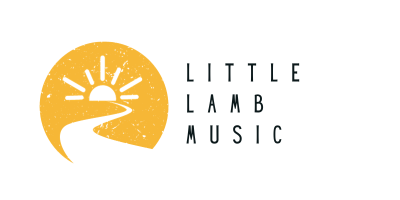Understanding the Distinctions: Music Lessons vs. Music Therapy for Children with NDIS Access
What’s the best way to engage?
As a parent of a child accessing the National Disability Insurance Scheme (NDIS), you may be aware of various options for utilising music to support your child's development. Two common approaches are music lessons and music therapy. While both involve music, it is essential to understand the fundamental differences between these approaches to make informed decisions that best suit your child's unique needs. In this week’s blog post, we will explore the distinctions between music lessons and music therapy, supported by empirical evidence, empowering you to make the most effective choices for your child.
Goals and Objectives:
Music Lessons: Music lessons primarily focus on instrumental or vocal instruction, aiming to develop musical skills, knowledge, and performance abilities. Lessons are structured to teach specific techniques, theory, and repertoire, typically following a predetermined curriculum. The primary goal is to enhance musical proficiency.
Music Therapy: Music therapy is a professional, evidence-based practice that utilises music to address non-musical goals, such as improving cognitive, emotional, physical, and social functioning. Through structured and goal-oriented interventions, music therapists employ musical experiences to meet individualised therapeutic objectives. The primary focus is on achieving therapeutic outcomes.
Research has consistently shown the effectiveness of music therapy in enhancing various domains, including communication skills, emotional expression, social interaction, and motor abilities, among children with disabilities (Kim et al., 2020; Reschke-Hernández et al., 2021). The goals of music therapy are tailored to each child's needs and can encompass a wide range of developmental areas.
Professional Qualifications and Expertise:
Music Lessons: Music teachers possess expertise in music pedagogy and performance. They are skilled in teaching specific instruments, music theory, and techniques. Their primary role is to impart musical knowledge and skills to their students
Music Therapy: Music therapists are highly trained professionals with specific qualifications in music therapy. They possess knowledge of music, psychology, and human development. They undergo rigorous training and supervised clinical practice to become proficient in using music as a therapeutic tool. Their role is to assess, plan, and implement interventions that address therapeutic goals and support overall well-being.
A systematic review of studies on the effectiveness of music therapy demonstrated that music therapists' expertise plays a vital role in achieving positive outcomes (Gold et al., 2021). Their specialised training enables them to adapt interventions to meet individual needs, facilitating meaningful progress in various domains.
Approach and Intervention Techniques:
Music Lessons: Music lessons follow a structured curriculum with a focus on teaching specific musical skills, techniques, and repertoire. The emphasis is on learning and mastering musical concepts through regular practice, repetition, and skill-building exercises.
Music Therapy: Music therapy employs a variety of music-based interventions to address therapeutic goals. These may include improvisation, songwriting, active music-making, receptive listening, movement to music, and musical games. The interventions are tailored to meet individual needs, preferences, and abilities.
Numerous studies have shown the positive impact of various music therapy techniques on specific outcomes. For example, improvisation in music therapy has been found to enhance emotional expression, communication, and social skills in children with autism spectrum disorder (Geretsegger et al., 2017). Such findings highlight the power of tailored and individualised interventions offered in music therapy.
Conclusion:
Understanding the distinctions between music lessons and music therapy is crucial when considering music engagement for yourself or your child. While music lessons focus on musical skill development, music therapy employs music as a powerful tool for achieving therapeutic outcomes in areas such as cognition, communication, emotional expression, and social skills. Empirical evidence consistently supports the effectiveness of music therapy as a valuable intervention for children with disabilities. By recognising the unique qualifications, goals, and techniques involved in music lessons and music therapy, parents can make informed decisions that align with their child's specific needs, fostering holistic growth and development.
Remember, as a parent, you play a crucial role in advocating for your child and selecting the most appropriate services. Consulting with professionals in both music education and music therapy can further assist you in making informed decisions tailored to your child's individual needs and goals.
If you’d like to have a chat with us about the best path for your child, feel free to give us a call today or fill out an inquiry form to tell us a bit about your situation.
References:
Geretsegger, M., Holck, U., Bieleninik, Ł., & Gold, C. (2017). Feasibility of a trial on improvisational music therapy for children with autism spectrum disorder. Journal of Music Therapy, 54(2), 178–203.
Gold, C., Wigram, T., & Elefant, C. (2021). Music therapy for autism spectrum disorder: A meta-analysis. Journal of Autism and Developmental Disorders, 51(8), 2640–2658.
Kim, J., Wigram, T., & Gold, C. (2020). Emotional, motivational and interpersonal responsiveness of children with autism in improvisational music therapy. Autism, 24(7), 1751–1762.
Reschke-Hernández, A. E., Darrow, A. A., & Heaton, L. J. (2021). Music therapy interventions for children with autism spectrum disorder: A systematic review. Journal of Autism and Developmental Disorders, 51(1), 30–45.

